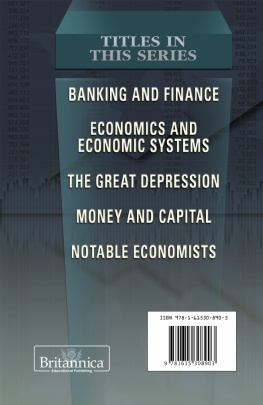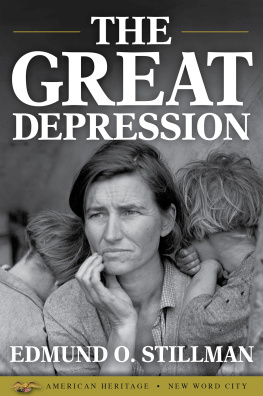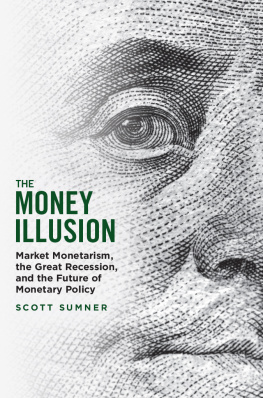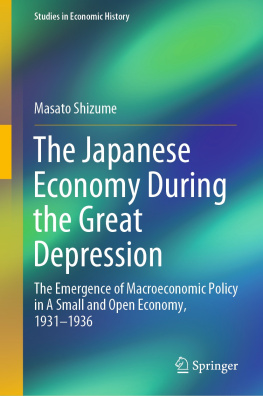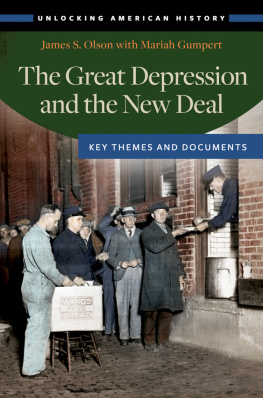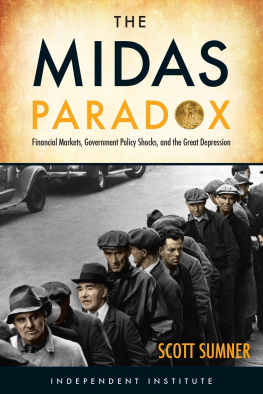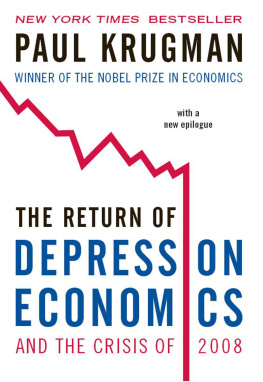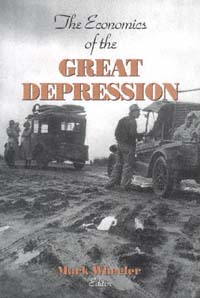We offer to read an annotation, description, summary or preface (depends on what the author of the book "The economics of the great depression" wrote himself). If you haven't found the necessary information about the book — write in the comments, we will try to find it.
Certain events define eras. The Great Depression, for instance, exemplifies the interwar period leading up to World War II. But, as it turns out, the reach of the Great Depression extends to this day, two generations after the event occurred. Policies enacted during the those tumultuous times continue to define basic structures of the American economy, and economists are still unsure of exactly what caused our most severe economic downturn. Its no wonder, then, that understanding the Great Depression is often seen as the Holy Grail of economics. This book contributes to our understanding of the Great Depressions immediate and long-term impacts on the American economy. Editor Mark Wheeler has gathered six scholars from a range of subdisciplines within economics who, together, offer a diverse look at the Depressionss effects on the nations GDP, workers and labor markets, and monetary policy. Included in this volume are Labor and Labor Markets in the 1930s, by Robert A. Margo. Margo surveys recent research on the immediate impact of the Great Depression on labor and labor markets. His analysis includes use of both macro- and microeconomic data, with an emphasis on the latter. He also contributes preliminary empirical findings on the patterns of self-employment during the late 1930s. Uneven Impacts of the Great Depression: Industries, Regions, and Nations, by Carol E. Heim. The Great Depression did not hit everyone equally. While millions lost jobs and suffered through humbling poverty, others kept working and benefitted from their wages increased buying power. While some industries tanked, others prospered. Professor Heim reveals the uneven impacts of the Great Depression on various industries, regions, and nations, and attempts to explain these inconsistencies. The Great Depression as a Historical Problem, by Michael A. Bernstein. Bernstein summarizes the views of a number of well-known macroeconomists who offered notable interpretations of the Great Depression (Friedman and Schwartz, Keynes, and Temin). He then analyzes the views of economists who viewed the event from outside the realm of conventional macroeconomic theory (including Harris, Sweezy, Kindleberger, and Lewis), and he concludes with a discussion of Steindls ideas on economic maturity. Propagation of the Depression: Theories and Evidence, by James S. Fackler. Fackler begins by reminding us that, despite the fact that six decades have passed since the Great Depression, the factors involved in propagating this tragic economic downfall remain subject to debate. He then reviews and tests theories of the causes of the Great Depression, including one of the early theories that has been subjected to relatively little empirical analysis, the debt-deflation hypothesis. Monetary Policy in the Great Depression and Beyond: The Sources of the Feds Inflation Bias, by David C. Wheelock. Wheelock asserts that the Great Depression caused lasting changes in monetary institutions that ultimately imparted an inflationary bias to the Federal Reserves monetary policy. Indeed, he argues that the Feds inflationary policy led to the collapse of the Bretton Woods System and abandonment of international linkages altogether. Wheelock also offers a list of the most enduring institutional reforms for monetary policy that were enacted during the Great Depression. Understanding the Great Depression: Lessons for Current Policy, by Stephen G. Cecchetti. Cecchetti spells out lessons for current policy that can be gleaned from studying the monetary policy in effect during the Great Depression. His examination leads him to describe three main lessons for current policymakers: 1) The central banks function as a lender of last resort is of primary importance in the short-term stabilization of the financial system, 2) Deflation is extremely costly and must be avoided, and 3) A gold standard is very dangerous.



